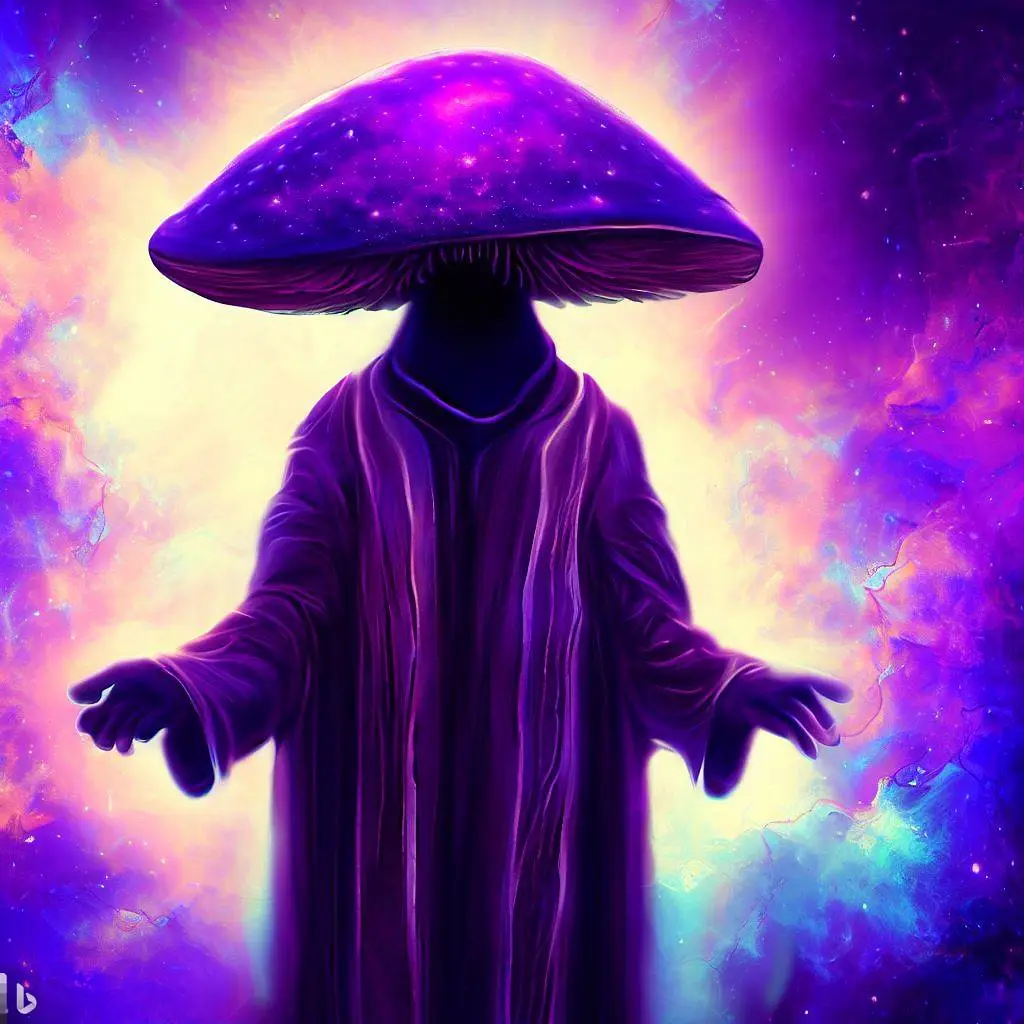It’s also not the Tree of Knowledge, it’s the Tree of Knowledge of Good and Evil. And that presents a problem:
If Adam and Eve did not yet understand what is and is not a good thing to do, they could not possibly have understood that it was not good to disobey God. Eve did not know the serpent was evil. And yet he punishes Adam and Eve for doing what they did not realize was wrong of them to do.
And yet he punishes Adam and Eve for doing what they did not realize was wrong of them to do.
You say this like punishing people who don’t understand the rules isn’t a fundamental part of christianity.
Adam and Eve was pre-Christianity though.
Side note, and God created the tree of the knowledge of Good and evil. God created everything. Therefore, God created evil.
Further, God does evil.
After the flood, there is a line that says “and God repented of the evil he had done”
And to me, that just basically means that evil is circumstantial. Not that there is a pure drop of evil in the universe, but rather that a thing that is meant to be a good thing can be an evil thing based on its interpretation.
To whit: it wasn’t evil that Adam and Eve were naked. God made them that way. And yet because they became aware of it and changed a innocent thing into an evil thing, that is what the evil was.
Which makes a lot more sense when you know these stories are adaptations of earlier myths. The polytheistic religions they came out of had no problem thinking the gods do evil things sometimes because they feel like it. As things transitioned to monotheism, and “God is good and merciful” was taken as a given, you end up having to jump through hoops to explain why this passage explicitly says God did evil. Even if the explanation is on some level convincing, it’s going to be more convoluted than “these stories evolved from earlier polytheistic religions”.
Consider that it is the knowledge itself that cast us down.
It doesn’t matter. They were being punished for something they didn’t know not to do.
Ignorance of the law is no excuse or whatever 🙄
Adam was told not to, but only afterwards did he know. These early part of Genesis are interesting in the way the world supposedly unfurled.
Yes, I realize he knew he did something wrong after he did the wrong thing. The point was he didn’t know it was wrong before and when he did it. Which makes the god of Genesis supremely fucked up.
Also God kinda lied to them or at least deceived them by saying they’ll die if they eat the fruit from memory.
He was saying they would grow old and die rather than living forever.
but of the tree of the knowledge of good and evil, thou shalt not eat of it. For in the day that thou eatest thereof, thou shalt surely die.
Sounds like a lie to me but I don’t know the original Hebrew so maybe it depends on your translation. To be fair it would be on the mild side of morally objectionable stuff God does in the bible.
Found this online:
The Hebrew phrase in English is more literally:
“Tree knowledge good evil eat day eat die (dying) die”
The Hebrew is, literally, die-die (muwth-muwth) with two different verb tenses (dying and die), which can be translated as “surely die” or “dying you shall die.” This indicates the beginning of dying, an ingressive sense, which finally culminates with death.
You should check out the book Ishmael by Daniel Quinn. He points out the importance of the name of the tree and has really interesting anthropological theories regarding the origin of the Adam and Eve story.
The Gnostic interpretation always made more sense to me. The serpent being a form of Christ.
He mostly punishes Eve. The first few pages are sexist as fuck
“Eat the fucking fruit!”
This is excellent
Where’s the piped bot?
Dunno, I blocked it a while ago.
Why? Please add it back.
No no, I blocked it so I don’t see it. You’d still see it if it posted.
I think apple used to be a generic term for fruits.
It is especially apparent for exotic fruits, for example here is a list of fruits from the Caribbean, none of then are related to the European apple:
- golden apple
- wax apple/rose apple
- pineapple
- sugar apple
- custard apple
It can, but I’m not sure if that explains why it’s often represented as an apple in the west.
Here’s what Wikipedia has to say:
In Western Europe, the fruit was often depicted as an apple. This was possibly because of a misunderstanding of – or a pun on – two unrelated words mālum, a native Latin noun which means ‘evil’ (from the adjective malus), and mâlum, another Latin noun, borrowed from Greek μῆλον, which means ‘apple’. In the Vulgate, Genesis 2:17 describes the tree as “de ligno autem scientiae boni et mali”: “but of the tree [literally ‘wood’] of knowledge of good and evil” (mali here is the genitive of malum). There is nothing in the Bible indicating that the forbidden fruit of the tree of knowledge was an apple.[10]
Potato (Pomme de Terre, Erdapfel)
In a slavic language (either Croatian or Czech, I forgot), it’s krompir, literally ground/soil pear.
My German professor even mentioned the archaic apfelsine for the citrus orange.
Apfelsine is not archaic. Very widely used today, at least here in the south.
Also, it literally means “Chinese apple” lol
Apelsin in Sweden
My money’s on it being a pomegranate originally. Apples wouldn’t have existed in the fertile crescent over 2000 years ago. Pomegranates are also messy and look bloody when eating them, fitting the “carnal knowledge” side of the story. I’ve heard other people suggest they could have been dates, but pomegranates seem like a way better fit for the story.
I don’t know why but I want to say persimmon. They’re worth getting tossed out of paradise for atnleast
I read somewhere it should have been a fig.
Adam and Eve never once complained about how freaking annoying it is to eat a pomegranate because 90% of it is dried bark and every tiny seed has its own inedible seed so I doubt that’s what it was.
There’s evidence of apple cultivation in the middle east from around 5000 years ago as far as I know.
Except that basically all fruits were apples for a really long time.
https://en.wikipedia.org/wiki/Apple
Etymology
The word apple, whose Old English ancestor is æppel, is descended from the Proto-Germanic noun *aplaz, descended in turn from Proto-Indo-European *h₂ébōl.[3]
As late as the 17th century, the word also functioned as a generic term for all fruit, including nuts. This can be compared to the 14th-century Middle English expression appel of paradis, meaning a banana.[4]So yes… We have no idea what the fruit actually was. Because all fruit were basically called “apple”.
Good thing there never was any apple because it’s all fantasy improv. Just decide on a fruit and you are as right as everybody else.
You can still approach the story on its own terms. If we said Captain Sisko drank tea rather than Raktajino, it’d still be wrong, even though Sisko and Raktajino don’t actually exist.
There is a original writer on startrek. They could recon Sisco to a tea lover tomorrow. The Bible is more like meme history, there is no regulating mechanism other than popularity. If you made the apple a banana tomorrow and most people agreed, it would be a banana and you would be right.
That’s more of a cultural thing, and one that I have broader things to say in terms of how copyright law has altered our culture.
Fantasy stories come from pre-copyright sources. Greek gods, elves, mermaids, etc. were all folk tales that developed without anyone caring about ownership. If the term “canon” meant anything at all, it was because the community accepted a certain set of stories by consensus. Biblical canon was done that way. Even this tends to be a written culture thing; oral cultures have a much more fluid understanding, and care less about consistency.
When copyright comes along, you start having big corporations controlling canon. We tend to only accept Star Trek things from Paramount as canon, and even that has limits; Star Trek comics and novels aren’t usually canon, even though Paramount licenses them.
Lord of the Rings will be copyright-free in about 20 years. It itself borrowed a lot from those pre-copyright folk tales. I’d be interested to see if the community starts to come to a new consensus on stories from new authors becoming LotR canon.
I’m not arguing for or against, just saying that there is no path on deciding what the author meant because we don’t even know who wrote it and they are long dead anyway. And there is nothing to study in nature because it was all fiction.
What the author “meant” is vastly overrated. The author is dead is sometimes more literal than other times.
We can pull information out of the text on its own. We can get cultural context to see how they would approach it. In OP’s case of the apple, we know that the term “apple” was a generic term for fruit for much of English history (and still is in some other European languages). We also know that what we call apple trees now don’t grow in that region, and therefore, it’s almost certainly not that kind of apple.
if you believe they will let it go. Tons of stuff hasnt made its way to the public domain, its all corrupt.
Not sure what you mean. If you mean they’re going to change the law again to extend copyright, note that Disney didn’t even try for Steamboat Willy. I made that argument 5 years prior to it going public domain that Disney wouldn’t bother, and it was already too late to push it through. People still told me there would be some big secret push to get it through Congress. They kept making that argument until literally the week before, when Congress was already out of session for the holidays. It didn’t happen, and Steamboat Willy hit public domain.
They don’t seem to have the stomach to continue indefinite extensions. Current copyright terms are probably as far as they go.
Good thing there never was any apple because it’s all fantasy improv.
The validity of the story was never in question for me… I’m atheist. Doesn’t mean we can’t discuss the story for what it is. It’s clear the writers of the story called it an apple because that’s what all fruit would have been called. That’s it. Don’t need to shit on someone else’s belief in the process.
Just like the majority of colors were more or less unnamed in a LOT of cultures until relatively recently.
Edit: Typo
Of course, and I did not shit on any beliefs. I only commented on the phrasing that you chose, namely “what the fruit was”. Even if you were talking about a short story fan fiction this would be the same situation.
The story had dozens of authors and rewrites. There is no correct answer. Possibly some authors and editors would give you different answers. My take is that there is no correct answer to be found and we can’t rely on checking facts of the event.
I like the “magic mushroom” theory.
I won’t say I believe it. But I like it.
Apple is probably the most common interpretation because a lot of languages use it as kind of a vague fruit term, and the Bible has been retranslated and reinterpreted roughly one million times. The French call potatoes apples
Including English: æppel meant any kind of fruit, which is why you have names like pineapple and elephant apple.
It was probably butt. Buttfruit. Eating ass was the forbidden fruit.
So the fruit was a dingleberry?
🍆 🍑
The good thing about fiction is if there is a gap, you can fill it with your own headcanon
its like a banana except you have suck out the fruit from one end
Well I’d guess fig since the covered their naughty bits with fig leaves after
It’s been depicted as various things in old art and literature. Apple is very common. But you also find figs, grapes, pomegranates, and occasionally pears. Probably some others I missed.
Isn’t it a birds and the bees story translated through a religious conservative lense… The forbidden fruit is sex.
It’s knowledge of good and evil and it says that quite literally in Genesis, but fundies say all kinds of dumb stuff.
Fishy story! 8*0
It’s common knowledge Mary Magdalene was a prostitute. I’m not sure why because it doesn’t say that anywhere in the Bible.
Well, I do. It was the easiest way to suppress women’s power in the church and in general.
I think there was a non-canonical gospel that said so. And yes, the early church seemed to be relatively liberal with women’s rights. A lot of that got clawed back with later additions and choices of what books to include in the biblical canon.
The gospel of Mary Magdalene for instance.
They were Palestinian, right? It was probably a Clementine.
Watermelon













